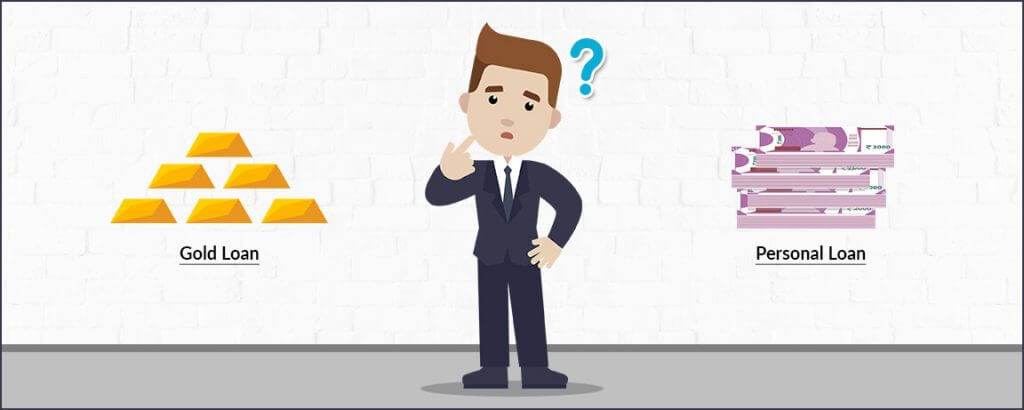Gold Loan vs Personal Loan: A comprehensive guide
When it comes to taking a loan, there are several options available in the market, including gold loans and personal loans. Here’s a comprehensive guide to help you understand the differences between the two and decide which one suits your financial needs.
What is a Gold Loan?
A gold loan is a secured loan that allows you to borrow money against your gold jewellery, coins, or bars as collateral. The loan amount you can receive depends on the value of the gold pledged, which is typically around 70-80% of the market value. Gold loans are typically short-term loans with repayment periods ranging from a few months to a few years.
What is a Personal Loan?
A personal loan is an unsecured loan that you can avail of without any collateral. The loan amount you can receive depends on your income, credit score, and repayment capacity. Personal loans are typically used for various purposes, such as funding a wedding, home renovation, or buying expensive gadgets. Personal loans have fixed interest rates and are typically repaid through monthly instalments over a fixed tenure.
Interest Rates
Gold loan interest rates are typically lower than personal loan interest rates since gold loans are secured loans. However, the interest rates for gold loans can vary based on the lender, loan amount, loan tenure, and gold valuation. Personal loan interest rates are typically higher than gold loan interest rates since they are unsecured loans.
Loan Tenure
Gold loans typically have shorter loan tenures compared to personal loans. Gold loans have repayment periods ranging from a few months to a few years, while personal loans have tenures ranging from one to five years or more.
Loan Amount
The loan amount you can receive through a gold loan is limited by the value of the gold you pledge as collateral. In contrast, the loan amount for personal loans can be higher, subject to the borrower’s income and repayment capacity.
Processing Time
Gold loans have a shorter processing time compared to personal loans since they require minimal documentation and no credit checks. Personal loans, on the other hand, require more documentation and credit checks, which can delay the loan processing time.
Credit Score
Since gold loans are secured loans, they do not require a high credit score for approval. Personal loans, on the other hand, require a good credit score to qualify for approval.
In conclusion, both gold loans and personal loans have their pros and cons. Gold loans are ideal for those who have gold jewellery or coins that they can pledge as collateral and need quick access to funds. Personal loans are ideal for those who do not have any collateral to pledge but have a good credit score and income to repay the loan. It’s essential to weigh the pros and cons of both options and choose the one that best suits your financial needs.




